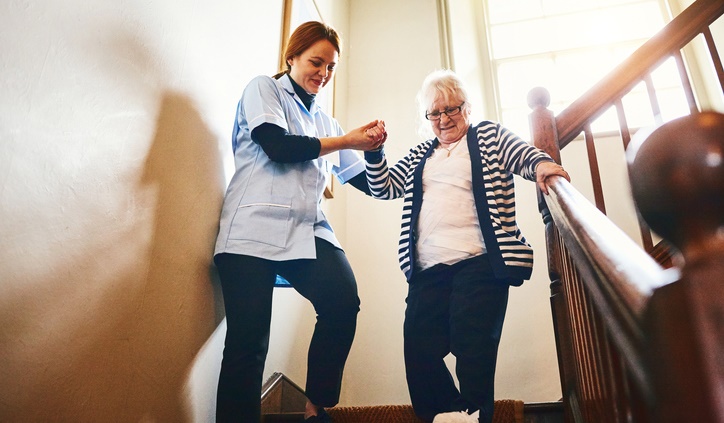AARP Hearing Center
Older people and adults with disabilities, particularly those with care needs, can benefit from care coordination. Care coordinators are typically nurses or social workers who can help with tasks such as monitoring chronic health conditions, connecting them to social supports, conducting assessments, and writing plans of care.
The field is changing rapidly with nearly half of the states moving to Medicaid managed care for its populations needing long-term services and supports (LTSS). This study finds that states are requiring care coordination and that care coordinators are critical points of contact for consumers and their family caregivers.
Purpose
The AARP Public Policy Institute contracted with Truven Health Analytics to conduct this major study because care coordination has been a focal point of managed LTSS. Yet, little was known about care coordinators:
- Who they are,
- What they do,
- Who they help, and
- If they involve family caregivers.
This research provides an inventory of state managed LTSS programs and answers these questions.
The Study
In Care Coordination in Managed Long-Term Services and Supports, the authors reviewed state contracts with health plans in the 18 states with Medicaid managed LTSS for older people and adults with physical disabilities. For added insight, they conducted two site visits. In Illinois, the visit focused on one health plan’s model, and the visit to Ohio examined the partnership of health plans and area agencies on aging to provide care coordination. Both states are in the early stages of implementation and give a glimpse into the disruption that managed LTSS is having on traditional case management organizations such as area agencies on aging.
Key Findings
- Most state managed LTSS programs require that all members receive some level of care coordination.
- Plans typically determine the level and intensity of care coordination by stratifying members into at least three risk groups—low, medium, and high.
- Care coordination is being defined more broadly in managed LTSS than in traditional case management programs. It generally includes comprehensive coordination with all health and social services and includes people with a variety of needs including medical, LTSS, and behavioral health.
- A care coordinator is typically a nurse or social worker with the nurse being the health lead and the social worker being the LTSS lead. Most often, they work for a health plan, but sometimes they work for a community-based organization or health system.
- The importance of family caregivers is often acknowledged in state contracts, though little specificity is provided about their role.
State Managed LTSS Contract Analyses
- Arizona
- California
- Delaware
- Florida
- Hawaii
- Illinois
- Kansas
- Massachusetts (One Care)
- Massachusetts (Senior Care)
- Minnesota
- New Jersey
- New Mexico
- New York
- Ohio
- Rhode Island
- Tennessee
- Texas
- Virginia
- Wisconsin
































































